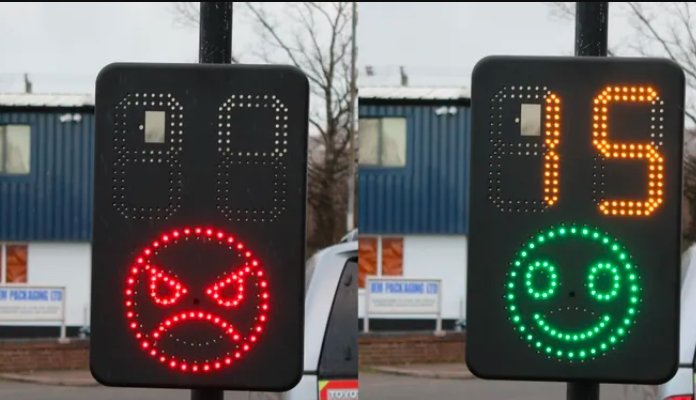As Scotland gears up for potentially sweeping changes to speed limits, one road safety firm is already shifting gears. Westcotec, a UK-based technology company, is doubling down on its commitment to Scottish roads with a major expansion and a string of smart solutions.
It’s not just more signs—it’s smarter infrastructure, more data, and stronger partnerships.
Expansion Near Glasgow Marks a Big Bet on Scotland
Westcotec isn’t new to Scotland, but this time, the firm’s making its presence far harder to ignore. It’s setting up a base at Roadside Technologies’ facility near Glasgow, giving it a foothold closer to many of the local authorities it already supports.
That’s no small move.
“We’re putting boots on the ground and investing in local talent,” said Olly Samways, the company’s sales director. “This isn’t just about selling hardware. We want to be on-site, face-to-face, helping councils build a safer road network.”
And the timing couldn’t be more relevant. With the Scottish Government actively consulting on changes to national speed limits, including a possible move to default 20mph zones in urban areas, demand for adaptive, data-driven solutions is climbing fast.

Speed Signs That Think — and Adapt
One of Westcotec’s most talked-about products is its switchable 20-30-40 speed signs. Already used in Wales, these signs are digital, flexible, and designed for both transitional and permanent changes.
The signs don’t just flash numbers. They:
-
Gather real-time vehicle speed data before any limit changes
-
Seamlessly switch to new limits once enacted
-
Offer visual warnings to speeding drivers using LED-based alerts
That makes them ideal for councils needing to phase in speed policy changes without ripping out infrastructure every few years.
“Speed isn’t just about limits—it’s about driver behaviour,” Samways added. “The more data you have, the smarter your enforcement and engagement can be.”
Westconnect: Behind the Scenes, Real-Time Control
The company’s secret weapon, however, might not be visible on the roads at all.
Westcotec’s recently launched Westconnect platform is where the real action happens. It’s a live data system, giving local authorities eyes on their networks 24/7. Everything from vehicle speed profiles to device status can be monitored remotely.
A key feature? Its open API.
That means local councils can connect Westconnect to their existing back-end systems or even third-party enforcement tools. Think of it like plugging a brain into the country’s road signs.
Here’s what Westconnect enables:
| Feature | Benefit |
|---|---|
| Real-time speed tracking | Immediate compliance data from any installed sign |
| Remote sign programming | Update messages without field visits |
| Historical data reports | Spot speeding trends over time |
| API integration | Sync with traffic, police, or planning databases |
| School safety schedule automation | Set school zone alerts by day, time, or holiday breaks |
One Scottish traffic planner called it “the smartest system we’ve ever tested.”
School Signs That Speak Louder Than Words
Westcotec’s focus on safety goes beyond just city traffic.
Its school safety signage packages are now being pushed more aggressively across Scottish council regions, particularly those with older, analogue infrastructure. These aren’t your average flashing beacons.
They include:
-
Traditional Twin Amber Flashers (TAFs)
-
Fully digital LED signs with pictograms and animated “SLOW DOWN” warnings
-
Timed activation during school hours
-
Compatibility with Westconnect for full remote oversight
One standout feature is remote programming. A council can set school holiday schedules for all its signs from a single dashboard. That’s a relief for local authorities dealing with multiple campuses and ever-changing term dates.
Some school clusters in Aberdeenshire have already adopted the signs. Feedback? “Teachers love it. Kids are safer. And parents actually slow down,” said a local transport officer.
Tech Meets Teamwork: Telent and Roadside Join Forces
Beyond hardware and platforms, Westcotec knows boots on the ground matter just as much.
That’s why it’s partnered with Telent, a digital infrastructure specialist, to bring in Scottish engineers and reduce reliance on fly-in support teams. It’s also working closely with Roadside Technologies, whose Glasgow site now serves as Westcotec’s Scottish hub.
Gary Bray, Roadside’s commercial director, said the collaboration is already delivering returns.
“Together, we’re faster to respond, quicker to install, and better able to support councils who are under pressure to meet ambitious safety targets,” Bray said.
And that pressure’s real. As part of Vision Zero goals, many Scottish councils are aiming to cut road fatalities by half before 2030.
Road Safety Meets Policy: Why the Timing Matters
Scotland’s road safety overhaul isn’t just about tech — it’s about timing.
In late 2024, the Scottish Government began consulting on a possible national 20mph urban limit. While no final policy has been announced yet, signs point to bold action.
According to Transport Scotland:
-
Over 30% of urban fatalities in 2023 involved excessive speed
-
Pedestrians struck at 40mph have a 90% fatality risk, compared to 10% at 20mph
-
More than half of Scottish councils are already piloting 20mph zones
Westcotec is positioning itself as the enabler — the company that doesn’t just sell signs but helps governments move from policy to pavement.
And judging by how fast local governments are snapping up its gear, it’s clear: the race for safer streets is on.


















